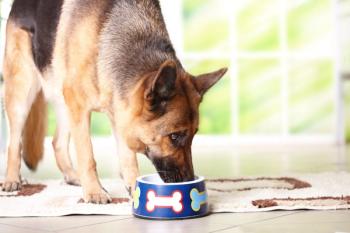
- dvm360 June 2019
- Volume 50
- Issue 6
UC Davis study: Homemade feline diets nutritionally inadequate
Not only do these diets lack essential nutrients, some may contain ingredients toxic to cats.
A study performed by researchers at the University of California, Davis, found that many homemade cat food recipes didn't include all the nutrients cats need, and they potentially contain ingredients that are toxic to cats, according to a release from the university.
“Only 94 recipes provided enough information for computer nutritional analysis and, of those, none of them provided all the essential nutrients to meet the National Research Council's recommended allowances for adult cats,” says lead author Jennifer Larsen, DVM, PhD, DACVN, UC Davis veterinary professor, in the release.
Regardless of whether the recipes were written by veterinarians or nonveterinarians, they still lacked nutrients, though the recipes authored by veterinarians had fewer deficiencies in essential nutrients, the release states. The study found that most recipes were lacking concentrations of three or more nutrients, with some deficient in up to 19 essential nutrients. Further, many had severe deficiencies, offering less than 50% of the recommended amount of several essential nutrients, including choline, iron, zinc, thiamin, vitamin E and manganese.
So would these recipes actually harm cats? It would vary based on feeding instructions, the length of time the cat ate the diet, the overall health of the cat and the degree of the recipe's nutritional deficiency, the release states. The researchers found just five recipes, all authored by veterinarians, that met all but one of the essential nutrients.
Several recipes (7%) called for ingredients that are potentially toxic to cats, such as garlic, onions and leeks. The researchers also found recipes that called for raw animal products without mentioning the potential for bacterial contamination. Recipes that included bones failed to mention the importance of grinding them to prevent gastrointestinal tears, the release continues.
Dr. Larsen says in the release that there was a large increase in cat owners switching their pets to homemade cat food recipes after toxic substances were found in commercial pet food imported from China more than a decade ago. Other cat owners choose homemade because they want more control over their cat's diet. Still others believe their cat should eat a diet with sustainably sourced, organic or vegetarian ingredients. But Dr. Larsen recommends that cat owners be cautious about homemade recipes.
“Homemade diets are not necessarily better,” she says. “If you are going to use one, you have to make sure you do it safely, and they should be balanced and appropriate for your individual cat.”
Cat owners shouldn't be afraid of commercial diets, Dr. Larsen continues, but recommends those who want to feed a homemade diet consult with
Articles in this issue
over 6 years ago
Voting for 2019 American Humane Hero Award now openover 6 years ago
A veterinary hospital to be seen inover 6 years ago
Checklist: Better communication as a veterinarianover 6 years ago
Updates and appointment reminders? Text, please!over 6 years ago
Walmart expanding walk-in pet clinic and pet pharmacy offeringsover 6 years ago
Letter to dvm360: Should non-DVMs 'fire' veterinary clients?over 6 years ago
Hope or hoax? How to evaluate veterinary cancer therapiesover 6 years ago
Shelter Snapshot: 9 ways to up your spay/neuter gameNewsletter
From exam room tips to practice management insights, get trusted veterinary news delivered straight to your inbox—subscribe to dvm360.





